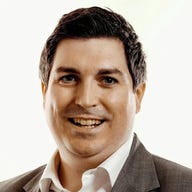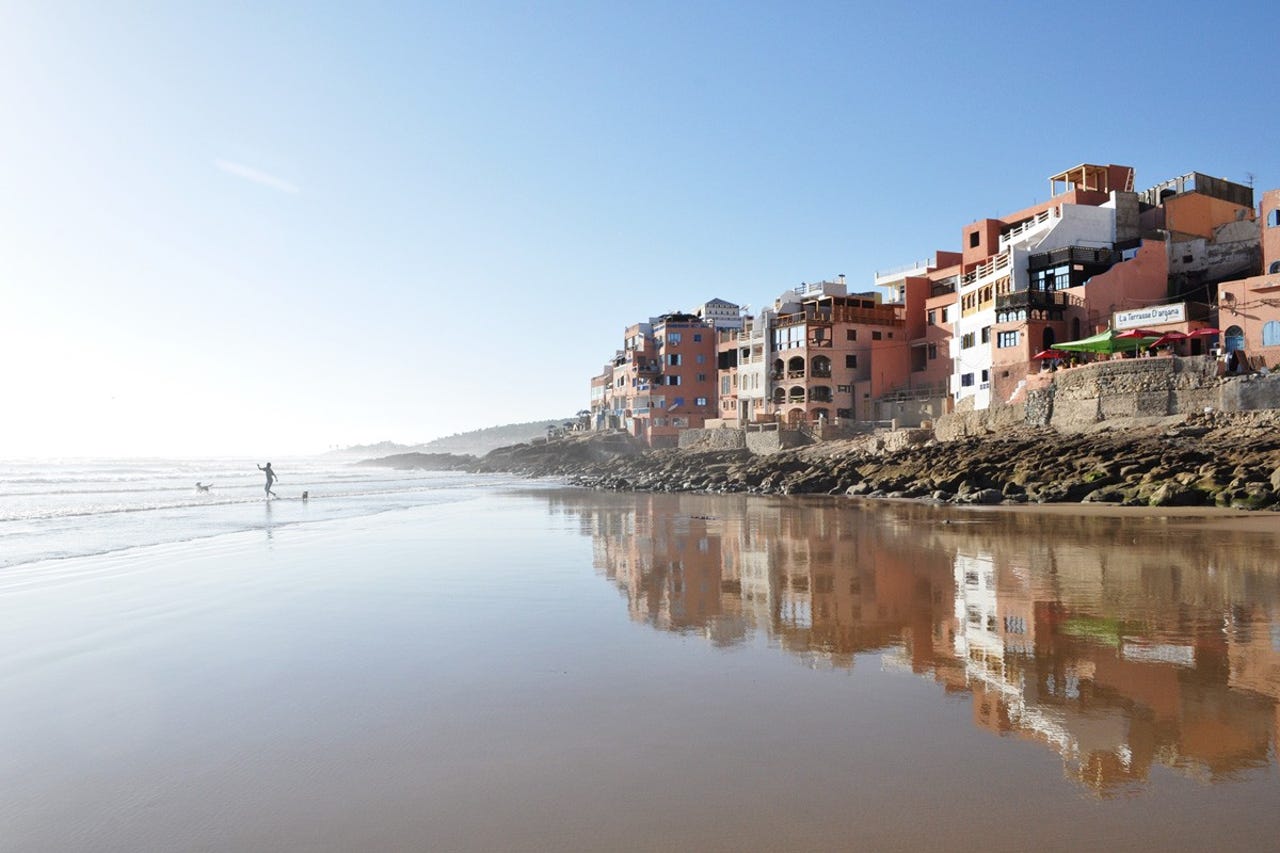From Chile to Seattle to Morocco: One startup's journey of software development across the globe


After helping found a student travel magazine, the team soon questioned if there wasn't a better model. "After that, it wasn't long before the idea of building a giant, interactive, map of stories from every single place on the planet was born," Sanders, Maptia's CEO and designer, told ZDNet.
Turning that idea into reality has subsequently seen the team embark on a unique journey across four continents. Beginning in 2012 with participation in two accelerator programs - Startup Chile in Santiago and TechStars in Seattle - the first beta version of the site was launched in 2013 from the unlikely location of Taghazout, a small fishing village in south-west Morocco.
By 2014 -- bolstered by support from two new recruits, Daniel Perlaky and Brian Jones -- the team relocated again, settling in the Swiss tourist town of Locarno to work on Maptia 2.0.
Going with the flow
Although this itinerant lifestyle might seem in keeping with a website devoted to what Sanders describes as "a world of remarkable stories, told by some of the most inspiring photographers, writers and adventurers on the planet," the rationale behind these frequent moves has often been highly pragmatic rather than the result of inveterate wanderlust.
In the first instance, the team landed in Santiago -- as part of Startup Chile -- primarily because "a far-flung government" gave them one-year work visas and a $40,000 "no-strings-attached grant" to work on their idea. They then spent the last of this funding flying 10,000km to participate in the pre-selection TechStars Open Day. (During which, as the founders revealed in a recent Medium post, they were "secretly sleeping on their office floor to save money.")
And after successfully graduating from the wider TechStars programme, the team took a similarly serendipitous route toTaghazout.
"Our team's temporary US visas expired," CTO and lead developer Fischer explains, "and so we knew we needed to relocate again."
"Being three British co-founders, London seemed like an obvious option, but it was too expensive for us to rent accommodation and office space, and we wanted something that was a little more in tune with our travelling roots," Fischer adds.
Recognising the need to stretch their funding for as long as possible, or "at least until we had launched the beta version of Maptia," Sanders, Miller, and Fischer subsequently stepped out of the startup echo chamber to find themselves surrounded by local fisherman and visiting surfers in a small village on Morocco's Atlantic coast.
Morocco: the startup road less travelled
"In Taghazout, costs for our rent and office space were a fraction of what we would have paid in a major European city," Miller, Maptia's CMO and head of community, says.
Moreover, Miller adds, "at that point, all we really needed was a relatively fast Internet connection and a place where we could be 100 percent focused on building the first version of Maptia."
Travelling on tourist visas, the team was soon installed in a new HQ with sea views and a roof terrace. Arriving in Taghazout a week before the others, Miller had found the seaside gem as a result of literally knocking on doors to see what was available. "It would have been possible to pre-book somewhere," Miller says, "but the cost would have been much higher."
Perhaps more importantly for tech based entrepreneurs, this hands-on approach also meant that they could check the connectivity of potential locations too. "Not all apartments in places like Taghazout are equipped with broadband," Miller cautions, "so it is definitely worth confirming this in advance before making any commitments."
Using chairs and desks haggled from a nearby scrapyard, the team then spent the next eleven months working on the site, pausing occasionally to hang out with passing entrepreneurs or to make their weekly pilgrimage to the local market at 'Banana Village' to keep the food bill down to $10 per person per week.
Wider benefits
Aside from allowing the team to stretch their remaining budget, there were other benefits to the move. "Being in Morocco allowed us to gain a sense of clarity and perspective as we stepped away from the intense US startup ecosystem," Sanders says.
"In Morocco, life and work beat to a very different tempo from the often hectic startup culture in the States." That's important, she adds, "because as anyone who has been a startup founder will know, it can be incredibly difficult to switch off when there is an endless list of things you should be doing to move your company or product forwards, and reach that tantalising next milestone."
Miller agrees, highlighting how being in Taghazout "surrounded us with ways to keep our perspective and encouraged us to take time off -- from hiking, to rooftop yoga, to surfing."
Challenges
However, he also notes that this experience was not necessarily without its more testing aspects too.
"Broadband speed was better than expected," at between 4Mbps and 10Mbps, Miller says. However, it could be frustrating when "every couple of weeks we were forced to slow down when a heavy rainstorm took out the power and the internet."
He also highlighted other key considerations from any potential entrepreneurs thinking of following in their footsteps, including language (locals spoke a mixture of Berber, Arabic, and French), flexibility (there's a big difference the team agrees between 'Moroccan time' and 'Seattle time') and seasonality.
"We didn't have air-con in Taghazout," Miller recalls, "and in Morocco the summers get pretty hot, over 40 degrees Celsius on some days. Being there for more than ten months, we sweated out a long hot summer."
Lessons learned
Looking back on their Moroccan experience, Miller says "being isolated from the startup community was a double-edged sword."
Of the people they met from "burnt-out city-dwelling entrepreneurs [through to] digital nomads passing through Taghazout itself and [often] staying anywhere from a week to a few months, all were just passing through."
As a result, "on the one hand, it is amazing for a period of time to focus and not be being distracted by tech meetups and events, but on the other hand, I think for more than 12 months or unless you are in a very product-focused phase it can be somewhat isolating."
To offset this risk, the team recommended a number of tools for distributed teams, like those curated by Product Hunt, as well as emerging online communities - like HashtagNomads - which connect digital nomads with one another.
Future plans
As for the team itself, "now Maptia is publicly launched we will definitely value being an active part of an offline creative and entrepreneurial community," Sanders says.
To help them achieve this ambition, they plan to move once more in early 2015. "For the first half of next year we'll be located in the creative city of Bristol in the UK," Sanders tells us, "and then for the second half of 2015 we are hoping to relocate to Bali or somewhere else in Asia, which would be the fifth continent on our startup adventure."
Wherever they end up, this startup's appetite for adventure doesn't look like it's going to be exhausted anytime soon.
Read more on startups